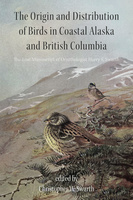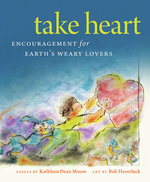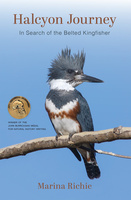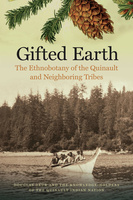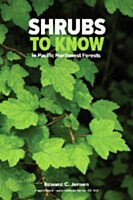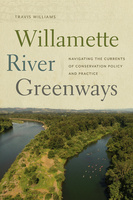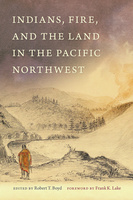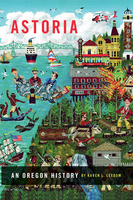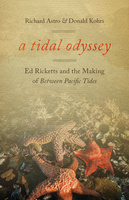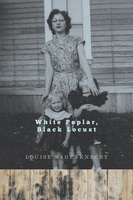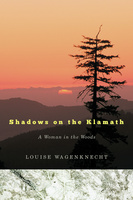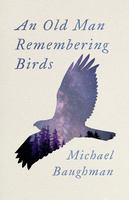Oregon State University Press
For fifty years, Oregon State University Press has been publishing exceptional books about the Pacific Northwest—its people and landscapes, its flora and fauna, its history and cultural heritage. The Press has played a vital role in the region’s literary life, providing readers with a better understanding of what it means to be an Oregonian. Today, Oregon State University Press publishes distinguished books in several academic areas from environmental history and natural resource management to indigenous studies.
Cheese War
Conflict and Courage in Tillamook County, Oregon
In the 1960s, Tillamook County, Oregon, was at war with itself. As the regional dairy industry shifted from small local factories to larger consolidated factories, and as profit margins for milk and cheese collapsed, Tillamook farmers found themselves in a financial crisis that fueled multiple disputes. The ensuing Cheese War included lies and secrets, as well as spies, high emotion, a shoving match, and even a death threat.
On one side of the battle was Beale Dixon, head of Tillamook County Creamery Association. Dixon set up a scheme to offer low-interest, low-collateral loans from TCCA’s largest member cooperative, Tillamook Cheese & Dairy Association, to the supermarkets that stocked Tillamook products. Dixon argued it was a cheap, easy way to ensure good will—and continued purchases—in a tight market. On the other side was George Milne, a respected farmer and board president of the cooperative. Milne supported his board’s decision that loans would require board approval and bank oversight. Dixon mostly ignored those requirements.
The discovery of more financial irregularities soon spiraled into a community-wide dispute, exacerbated by a complex web of family and business relationships. The Cheese War raged for the better part of a decade across board meetings, courtrooms, and the community itself. While largely unknown outside of Tillamook County, the Cheese War was so divisive that some families remain fractured today.
Sisters Marilyn Milne and Linda Kirk, children of the Cheese War, saw how it absorbed their parents. As adults, they set out to learn more about what had happened. The authors conducted years of research and have integrated it with tales of their experiences as farm kids living through the all-consuming fight. As Americans become ever more interested in food supply chains and ethical consumption, here is the story of the very human factors behind one of Oregon’s most iconic brands.
The Origin and Distribution of Birds in Coastal Alaska and British Columbia
The Lost Manuscript of Ornithologist Harry S. Swarth
At the time of his death in 1935, Harry S. Swarth, head of the Mammalogy and Ornithology Departments at the California Academy of Sciences in San Francisco, had been preparing a manuscript reflecting on twenty-five years of his research in coastal Alaska and British Columbia. “The Distribution and Migrations of Birds in Adjacent Alaska and British Columbia” summarized Swarth’s research, ideas, and conjectures on the bird life in the region, including theories about when and how birds populated this vast territory after the retreat of glaciers near the end of the Pleistocene. Drawing on his field experiences and his forty published scientific papers, Swarth’s manuscript represented state-of-the-art science for the time. And his ideas hold up; his papers are still cited by ornithologists today.
In 2019, Christopher Swarth, Harry’s grandson and a scientist in his own right, discovered the forgotten manuscript. This book includes the original unpublished manuscript, accompanied by contextual essays from contemporary ornithologists who examine the impact and relevance of Swarth’s research on coastal bird diversity, fox sparrow migration, and the systematic puzzle of the timberline sparrow. Expedition maps display field camps and exploration routes, and species checklists illustrate the variety of birds observed at key field sites. To bring additional color and insight, The Origin and Distribution of Birds in Coastal Alaska and British Columbia also includes excerpts from Harry Swarth’s field notes, a comprehensive list of Harry Swarth’s publications, and a glossary with historic and contemporary bird names. Naturalists, ornithologists, birders, and all those who want to learn more about the natural history of the region will delight in the rediscovery of this long-lost treasure.
Take Heart
Encouragement for Earth’s Weary Lovers
Earth’s weary lovers are tired, perplexed, and battered from all directions. Their hearts have so often been broken. It’s hard to go on, but it is morally impossible to quit. How do Earth’s protectors find the heart to continue the struggle?
To this question, environmental philosopher Kathleen Dean Moore and Canadian artist Bob Haverluck bring twenty-two life-affirming essays and drawings. Their entwined art offers pluck, stubborn resolve, and even some laughter to those who have for years been working for environmental sanity, social justice, and ecological thriving.
What Moore and Haverluck offer is encouragement to join or keep on with Earth’s work—not distractions, but deep and honest reasons to remember that the struggle matters. Rather than another to-do list or an empty promise of hope, Take Heart is a thank-you gift to the multitudes of Earth’s defenders. Inside its pages, they will find reason to take heart.
Taking heart is not hope exactly, but maybe it’s courage. Not solutions to the planetary crisis, but some modest advice for the inevitable crisis of the heart. A rueful grin, and gratitude to be part of this strange and necessary work for the endangered Earth.
Children of the Stars
Indigenous Science Education in a Reservation Classroom
In the 1990s, Ed Galindo, a high school science teacher on the Fort Hall Reservation in Idaho, took a team of Shoshone-Bannock students first to Johnson Space Center in Texas and then to Kennedy Space Center in Florida. These students had submitted a project to a competitive NASA program that was usually intended for college students—and they earned a spot to see NASA astronauts test out their experiment in space. The students designed and built the project themselves: a system to mix phosphate and water in space to create a fertilizer that would aid explorers in growing food on other planets.
In Children of the Stars, Galindo relates his experience with this first team and with successive student teams, who continued to participate in NASA programs over the course of a decade. He discusses the challenges of teaching American Indian students, from the practical limits of a rural reservation school to the importance of respecting and incorporating Indigenous knowledge systems. In describing how he had to earn the trust of his students to truly be successful as their teacher, Galindo also touches on the complexities of community belonging and understanding; although Indigenous himself, Galindo is not a member of the Shoshone-Bannock tribes and was still an outsider who had as much to learn as the students.
Children of the Stars is the story of students and a teacher, courage and hope. Written in a conversational style, it’s an accessible story about students who were supported and educated in culturally relevant ways and so overcame the limitations of an underfunded reservation school to reach great heights.
Halcyon Journey
In Search of the Belted Kingfisher
More than one hundred species of kingfishers brighten every continent but Antarctica. Not all are fishing birds. They range in size from the African dwarf kingfisher to the laughing kookaburra of Australia. This first book to feature North America’s belted kingfisher is a lyrical story of observation, revelation, and curiosity in the presence of flowing waters.
The kingfisher—also known as the halcyon bird—is linked to the mythic origin of halcyon days, a state of happiness that Marina Richie hopes to find outside her back door in Missoula, Montana. Epiphanies and a citizen science discovery punctuate days tracking a bird that outwits at every turn. The female is more colorful than the male (unusual and puzzling) and the birds’ earthen nest holes are difficult to locate.
While the heart of the drama takes place on Rattlesnake Creek in Missoula, the author’s adventures in search of kingfisher kin on the lower Rio Grande, in South Africa, and in London illuminate her relationships with the birds of Montana. In the quiet of winter, she explores tribal stories of the kingfisher as messenger and helper, pivotal qualities for her quest. For all who love birds or simply seek solace in nature, Halcyon Journey is an inviting introduction to the mythic and mysterious belted kingfisher.
Gifted Earth
The Ethnobotany of the Quinault and Neighboring Tribes
Gifted Earth features traditional Native American plant knowledge, detailing the use of plants for food, medicines, and materials. It presents a rich and living tradition of plant use within the Quinault Indian Nation in a volume collaboratively developed and endorsed by that tribe.
The Quinault Reservation on the Olympic Peninsula of Washington state is a diverse tribal community, embodying the traditional knowledge of tribes along the entire Pacific Northwest coast. Its membership consists of descendants of many tribes—from the northwestern Olympic Peninsula to the northern Oregon coast—including the Quinault, but also many others who were relocated to the reservation in the nineteenth and early twentieth centuries. Individuals descended from these tribal communities, including Chinook, Chehalis, Hoh, Quileute, Queets, Cowlitz, Tillamook, Clatsop, and others, have contributed to Gifted Earth, giving it remarkable breadth and representation.
A celebration of enduring Native American knowledge, this book will help non-specialists as they discover the potential of the region’s wild plants, learning how to identify, gather, and use many of the plants that they encounter in the Northwestern landscape. Part ethnobotanical guide and part “how-to” manual, Gifted Earth also prepares plant users for the minor hazards and pitfalls that accompany their quest—from how to avoid accidentally eating a bug hidden within a salal berry to how to prevent blisters when peeling the tender stalks of cow parsnip.
As beautiful as it is informative, Gifted Earth sets the standard for a new generation of ethnobotanical guides informed by the values, vision, and voice of Native American communities eager to promote a sustainable, balanced relationship between plant users and the rich plant communities of traditional tribal lands.
Shrubs to Know in Pacific Northwest Forests
This full-color, simple-to-use field guide makes shrub identification easy and fun. It features 100 of the most common shrubs that grow in and around Pacific Northwest forests—from southern British Columbia to northern California and from the Pacific Ocean to the northern Rockies. It includes an overview of shrub communities in the Pacific Northwest; more than five hundred color photos; individual range maps and complete descriptions for each species; notes on range and habitat, response to disturbance, traditional and current uses, and origin of names; glossary of identification terms; and an easy-to-use, well-tested identification key.
Bernard Daly's Promise
The Enduring Legacy of a Place-based Scholarship
Published in cooperation with the Dr. Daly Project Association
Bernard Daly escaped the Irish Famine and with his family emigrated to America, where he became the town doctor in Lakeview, Oregon, and then a state legislator, Oregon Agricultural College regent, county judge, rancher, and banker. When he died in 1920, his estate, valued at about a million dollars, established a college scholarship for the youth of Lake County, ensuring that most of them could attend college.
It’s hard to imagine a place more distant from higher education than Lake County in south central Oregon, a county about the size of New Jersey with a population under eight thousand. When the Bernard Daly scholarship was first awarded in 1922, less than two percent of America’s youth went to college, and the percentage was even lower in Lake County.
Today, Lake County students are much more likely to go to college, graduate in four years without debt, go on to graduate school, have successful careers, and contribute to the larger community—all because of a scholarship established a hundred years ago by an immigrant who sought a better life, not only for himself but also for others.
Drawing on more than a hundred personal interviews, an extensive web-based survey, and archival materials, Bernard Daly’s Promise offers unique insights into the benefits of higher education and how it might best be supported—questions that we are struggling with today.
Willamette River Greenways
Navigating the Currents of Conservation Policy and Practice
The Willamette River Greenway Program, first proposed in 1966 by future Oregon governor Bob Straub, envisioned a nearly two-hundred-mile assemblage of public lands along the Willamette River for public use and environmental protection. While the Greenway Program fell far short of Straub’s original proposal, today it provides for significant riverside lands with a range of public benefits. The Greenway Program also offers a useful lens through which to view the successes and failures of Oregon’s environmental protection policies over the past few decades.
Travis Williams, executive director of Willamette Riverkeeper, has spent countless hours paddling the Willamette, becoming familiar with its flora, fauna, and human neighbors. In Willamette River Greenways, he combines personal narrative about his experiences on the river with nuanced consideration of the controversies and challenges of the Greenway Program. Williams sheds light on current land stewardship practices, revealing the institutional and leadership failures that endanger the river’s water quality and habitat, and looks to the program’s future. He also takes readers with him onto the water, sharing what it’s like to travel the river by canoe, paying homage to the river’s natural beauty and the host of wildlife species that call it home.
Part policy analysis, part advocacy, and all love letter to one of Oregon’s great rivers, Willamette River Greenways offers valuable perspective to policymakers, land use managers, and recreational river users alike.
Indians, Fire, and the Land in the Pacific Northwest
This publication is supported by a generous grant from the Confederated Tribes of Grand Ronde through their Cultural Resources Publication Sponsorship Program
Instead of discovering a land blanketed by dense forests, early explorers of the Pacific Northwest encountered a varied landscape including open woods, meadows, and prairies. Far from a pristine wilderness, much of the Northwest was actively managed and shaped by the hands of its Native American inhabitants. Their primary tool was fire.
This volume takes an interdisciplinary approach to one of the most important issues concerning Native Americans and their relationship to the land. Over more than 10,000 years, Native Americans in the Northwest learned the intricacies of their local environments and how to use fire to create desired effects, mostly in the quest for food.
Drawing on historical journals, Native American informants, and ethnobotanical and forestry studies, this book’s contributors describe local patterns of fire use in eight ecoregions, representing all parts of the Native Northwest, from southwest Oregon to British Columbia and from Puget Sound to the Northern Rockies. Their essays provide glimpses into a unique understanding of the environment, one that draws on traditional ecological knowledge. Together, these writings also offer historical perspective on the contemporary debate over “prescribed burning” and management of public lands.
This updated edition includes a foreword by Frank K. Lake and a new epilogue by editor Robert T. Boyd. Contributors include Stephen Arno, Stephen Barrett, Theresa Ferguson, David French, Eugene Hunn, Leslie Johnson, Jeff LaLande, Estella Leopold, Henry Lewis, Helen H. Norton, Reg Pullen, William Robbins, John Ross, Nancy Turner, and Richard White.
Astoria
An Oregon History
Before Seattle, before Portland, there was Astoria.
The rest of the country is just beginning to discover Astoria, Oregon, that historic gem of a town at the mouth of the Columbia River west of Portland, and the oldest European-American settlement west of the Rockies.
The author provides a chronological look dating back to the 1500s, including European exploration, Native American life, logging, fishing, Chinese laborers in the salmon industry, a giant cheese in the Civil War, Oregon’s first female surgeon, Victorian architecture, and valiant Coast Guard rescues.
Published by Rivertide Publishing and distributed by Oregon State University Press
A Tidal Odyssey
Ed Ricketts and the Making of Between Pacific Tides
Between Pacific Tides by Edward F. Ricketts and Jack Calvin is arguably the most important book about marine ecology on the Pacific coast of North America. At a time when almost all studies of life in the intertidal zones were taxonomic, Ricketts and Calvin revolutionized the field and helped to lay the groundwork for studies of the impact of environmental change on the natural world. Though Ricketts is perhaps best known as a quirky character in John Steinbeck’s fiction, he was a serious marine biologist who conducted pioneering research.
In A Tidal Odyssey, literary scholar Richard Astro and archivist Donald Kohrs explore how Between Pacific Tides came to be, covering both the writing process and the long journey to publication. They tell three interwoven stories: the development of ecology as a valuable new approach to the study of marine life in the intertidal zone; a case study of how new and dynamic science is published and reaches a larger audience; and the intellectual development of Ed Ricketts.
Not only a scientist but also an expert in music, philosophy, history, and literature, Ricketts and his work impacted a broad range of writers and scholars. A number of these intellectual figures appear in A Tidal Odyssey, including Ricketts’s co-author, Jack Calvin, and illustrator, Ritch Lovejoy; mythologist Joseph Campbell; novelist Henry Miller; composer John Cage; and of course John Steinbeck. The authors have drawn extensively from Ricketts’s archive, including previously unpublished letters, memoranda, notebooks, and photographs.
A Tidal Odyssey is for anyone interested in the world of Ed Ricketts as well as marine biology, intertidal ecology, and how ecological studies underpin our understanding of the impact of environmental change on the well-being of our planet.
White Poplar, Black Locust
Growing up in one of the West’s last company lumber towns, a small community called Hilt on the California-Oregon border, Louise Wagenknecht witnessed the dying years of a unique way of life. The lumber boom of the 1950s and 1960s would devastate the ancient old-growth forests of the Klamath Mountains as well as the people of Hilt, whose lives were inextricably tied to the company lumber mill. White Poplar, Black Locust is the story of that transformation, but it is also something more—a noteworthy addition to the literature of place, and a sensitive and richly textured family memoir. As Wagenknecht unravels the threads that still bind her to both Hilt’s history and her own, unforgettable characters emerge, and what should have been the happy ending to this story, the marriage of her divorced mother to a forester working for the Fruit Growers Supply Company, becomes instead the end of childhood innocence, foretelling the demise of the mill and the end of Hilt itself.
Originally published by the University of Nebraska Press in 2003, this first book in Louise Wagenknecht’s trilogy about life in the Klamath Mountains is now available through Oregon State University Press, together with Light on the Devils (2011) and Shadows on the Klamath (2021).
Shadows on the Klamath
A Woman in the Woods
In 1973, Louise Wagenknecht was just another college graduate, but unlike many, she wanted to go home, back to the Klamath Mountains where she was raised. When a job offer from the Klamath National Forest gave her that chance, she jumped at it. She landed in the logging town of Happy Camp, where she’d spent part of her childhood, as chronicled in her previous memoirs, White Poplar, Black Locust and Light on the Devils.
With Shadows on the Klamath, Louise Wagenknecht completes her trilogy about life in remote northwestern California. In this new work, she recounts her years in the Forest Service, starting as a clerical worker on the Klamath National Forest before moving to a field position where she did everything from planting trees to fighting fires.
Her story is about a Forest Service in transition, as forest management practices began to shift. Not least among these changes was the presence of women in the ranks—a change that many in the Forest Service resisted. Wagenknecht blends the personal and professional to describe land management in the West and the people who do it—their friendships, rivalries, and rural communities.
Anyone with an interest in the Klamath-Siskiyou region, or the history of women in natural resource agencies, or the many issues associated with industrial forestry, should read this book for its valuable firsthand perspective. General readers interested in the rural West and personal memoir will also be richly rewarded.
An Old Man Remembering Birds
In a series of short, engaging essays, Michael Baughman reflects on his lifelong fascination with birds—on his deck in southern Oregon, at the end of a shotgun, on the beaches of Hawaii and Baja California.
Birders are dedicated and passionate, and, like anglers, they all have their stories. But Baughman tells more than simple accounts of birds spotted in the field. He reflects on human-animal relations, why humans seek closeness with nature, how a dedicated birder can also be a dedicated hunter. He explores how environmental change has altered the rhythms of bird life: the ospreys that resurged after DDT was banned, the waxwings and juncos that appear rarely now as climate change takes a toll on bird populations. Baughman also describes encounters with wildfires and smoke and discusses how they shape the landscape and wildlife of contemporary Oregon.
In his eighty-plus years around birds, Michael Baughman has learned one immutable lesson: as long as you remain alive and human, the closer you get to birds, and the more time you spend among them, the more you love them.


